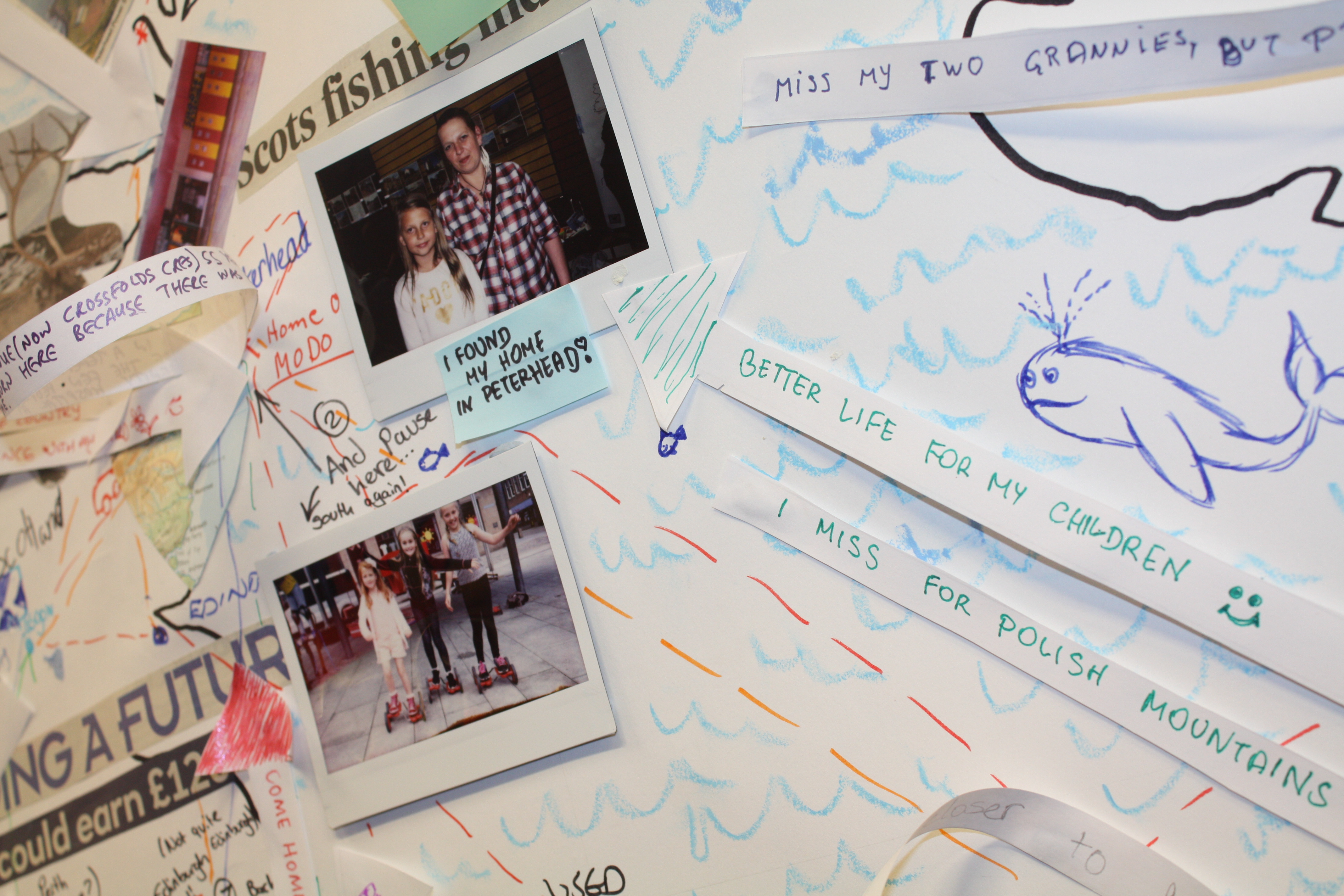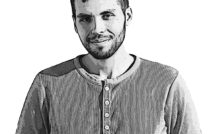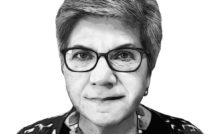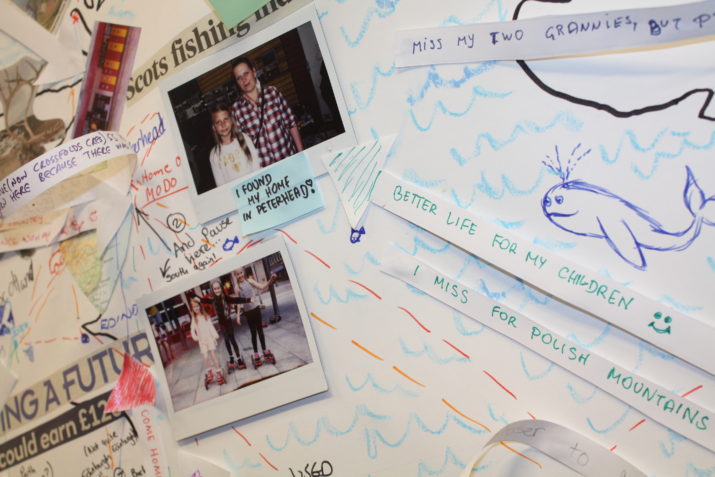
Language Cafes as a site of Wider Cultural Integration
This project aims to influence policy and practice, and to make tangible improvements to the lives of migrants who have settled in Scotland. Our focus is participatory action research, working with migrants and stakeholders to find local, grassroots solutions to issues they have identified. We have started a Language Café to create opportunities for migrants and locals to get to know each other, have a conversation over coffee, and build community cohesion.
Introduction and Background to the SSAMIS Project
SSAMIS (Social Support and Migration in Scotland) is a collaborative four-year project (November 2013 – November 2017) between Swansea University and the University of Glasgow. Funded by the Economic and Social Research Council, we are exploring experiences of migration and settlement amongst Central and East European (CEE) and Former Soviet Union (FSU) migrants living and working in small towns and villages in Aberdeenshire and Angus, and in the cities of Aberdeen and Glasgow. The SSAMIS team completed the project’s main phase of fieldwork in December 2015. This involved face-to-face interviews with over two hundred migrants as well as approximately sixty representatives of local authorities, service providers, and migrant associations. Key themes of employment, housing, and family issues emerged from this in-depth, qualitative research.
We are nearing the end of the participatory action research (PAR) stage of the project.
I have been working in North Aberdeenshire, mainly in the fishing town of Peterhead, exploring key themes from the earlier research phase. I have been looking at the process of settlement–what makes a person feel at home in a new place–particularly in terms of language, employment, culture, and friendships/belonging.
Participatory Action Research and Community Engagement
The main feature of our Participatory Action Research (PAR) is that it includes practical initiatives to improve migrants’ lives. People from Central and Eastern Europe often work in highly segregated workplaces where they have little scope for learning English or meeting people from the local community. A number of our interviewees have mentioned the desire to make more Scottish friends, but at the same time have talked about the barriers to doing so. The biggest are language and lack of opportunities for meeting local people in a communal space. This is felt especially strongly in our rural research locations, where many of our participants reported social isolation. SSAMIS research has also shown that there is a lack of family-friendly, safe places where the migrant population and the established community could meet and establish meaningful relationships.
In PAR, the participants are at the heart of the process, identifying the issues that matter to them, working in partnership with the SSAMIS team and local stakeholders to develop grassroots community initiatives that meet their needs, then reviewing the process. PAR is a cycle of planning, action, and reflection. It is a collaborative, democratic process, co-produces knowledge, and is designed to bring about change.
“Make it Happen:” Community Café Initiatives
In May 2016, SSAMIS held a community consultation event in Angus, where ESOL learners from the local college were asked what they were looking for when accessing ESOL provision. Several respondents replied that they wanted more opportunity for English conversation with native speakers. We had already begun thinking about community cafés as a possible PAR initiative, so we asked the workshop participants if they’d be interested in getting involved in a café project. Feedback was positive, so we did some research into other community cafes. The local authority had recently started a community café in Forfar, Angus, and one of the workshop participants was involved in a café in Glasgow called the “There’s Nae Such Thing as a Free Lunch Café,” which the SSAMIS team later visited.
These grassroots initiatives inspired my subsequent work in Peterhead. In partnership with local organizations, I developed a week-long pop-up café that ran in July 2016. We named it ”The Make It Happen Café” and delivered a week-long creative program where language teaching, arts workshops, politics discussions, and gardening came together to try and meet migrants’ needs. ”Make It Happen” was a creative experiment, and also market research into the longer term viability of a community café.
We knew there was a gap in the market for a café that provided services to migrants because a previous community café, The Hot Spot, had recently closed. Although it wasn’t specifically for migrants, it had offered advice on welfare issues, and was well-used, especially during specific times of crisis, such as when a fish factory burnt down in 2015 and migrants were facing unemployment. The Hot Spot also employed a migrant as a community worker and had previously held language and intercultural events in partnership with the Migrants’ Association, which has also subsequently been disbanded. These organizations folded due to funding challenges, despite being well-used, so we were especially aware of the need to build financial sustainability into our community initiatives.
I am particularly interested in how to promote social justice through language, creativity, and education. Drawing on my professional background in Adult and Community Education, as well as my network of contacts, I was lucky enough to meet some great people who became invaluable project partners. Modo, a youth circus and theater organization based in Peterhead, whose strapline is “circus with a purpose” was a key partner. They had recently led a creative town planning process ”Choose Peterhead” and knew that one of the recommendations from that process was the creation of a community café in the town center. Modo already ran a youth café three nights a week in a disused shop. For a nominal contribution towards their costs, we used the youth café as a venue for Make It Happen. The Workers’ Educational Association (WEA) paid for a dedicated ESOL tutor to run two Language Café sessions, a morning session for families, and an evening session when the youth café was also open. Over the course of a week, we ran language cafés, art, and animation workshops, a gardening session, a visit to a local museum, a politics café, and a talk on Scottish tourism through the eyes of a Latvian living in Peterhead. These activities were tailored to meet the needs of language learners, but were open to everyone who wanted to take part, thereby offering opportunities for community integration. The café was also open to the public during our activities.
The Make It Happen Café was an experiment to find out what would attract people to a community café, what days and times would work best for people who are committed to shift work, and to build a collective vision for a longer term plan for similar activities. The beginning of the week was quiet, but our numbers increased as word got out, and most people who engaged with the Café came back again and again. The six day program of morning, afternoon, and evening sessions gave us the opportunity to build significant relationships, and by the end of the week we had a core group who will lead on future activities.
The surprise hit was the politics café, which was advertised as a Q&A on the Life in UK citizenship test, following the Brexit referendum. It evolved into a lively discussion of current affairs, and the group met the following Saturday, without any SSAMIS support–a great example of participant-led activity. The Politics Café was included in the Make it Happen Peterhead week at the suggestion of one of our research participants, who also led and facilitated the discussion event.
Community workers from the surrounding area came to visit and take part in the project, and following on from Make it Happen Peterhead, my colleague Paulina ran Make It Happen Arbroath in October 16. These community initiatives are testament to what can be done on a small budget providing the passion, will and connection between people is kindled.
The Language Cafés were my favorite part of Make It Happen. On the Thursday evening, while the Modo youth café and circus workshop was in full swing, we met in a quieter upstairs room. We had carefully planned loads of language activities, exploring the themes of home, memories and reminiscences, music, and traditional customs. However, the conversation flowed, cakes were eaten, and excellent coffee was drunk, so we stepped aside from the lesson plan and had a brilliant evening. About twenty people came to the session, a mix of SSAMIS participants, parents whose kids were at the youth cafe downstairs and ESOL learners from other classes in Peterhead. We discussed our future hopes for more language cafés and began to think about how we could Make That Happen too!
Making Migrants’ Lives Visible
Since the experiences and perspectives of migrants themselves often remain little understood, SSAMIS prioritizes the often hidden migrant voice in both its theoretical and empirical approach. During our research several participants commented on perceptions of “migration” and”migrants” that did not reflect their own experiences and stories and felt that these were missing from both local and national discussions and media representations. This concern has fed into a final aspect of our PAR activities.
In Aberdeenshire, SSAMIS has created a platform for migrants to represent themselves, their lives and their everyday experiences by developing an exhibition, ”Journeys” for the Arbuthnot Museum in Peterhead. The museum has a collection of artefacts reflecting the town’s whaling and fishing past, but nothing that shows the impact of recent migration to the town, nor the experiences of migrants themselves. The migrant community is also underrepresented in visitor numbers.
”Journeys” was created by SSAMIS, in partnership with Aberdeenshire Council Museums Service, and Caged Beastie, Creative Artists. The exhibition contains artefacts loaned by participants in the original research and other materials co-created by participants in the Peterhead Make It Happen Café. It includes portraits, a film, a “living map,” which is a visual representation of people’s migratory journeys across Europe, and a collection of ”objects from home” on loan from project participants. The exhibition addresses key questions arising from our research: Why do people from other countries move to Scotland? What would you say to welcome new people to Scotland? What makes a place feel like home? How can we make newcomers feel more at home in Scotland? Visitors to the exhibition are invited to write a welcome message to migrants in the North East.
Materials co-produced during ”Make It Happen, Angus!“ will also form the basis of an exhibition, to be held in a local museum in early 2017 after which the two exhibitions combined will tour other local, national and possibly international venues.
Longer Term Impact
Following on from Make It Happen, the Aberdeenshire Community Café has now received funding to run for a year, and has been named ”Encounter.” SSAMIS are working in partnership with the WEA and Modo to run a weekly Language Café there. Our research has shown that family ESOL classes, to which parents could bring children, would greatly diminish barriers around access to provision and affordable childcare. SSAMIS is working in partnership with local ESOL providers to address this need and to do some further research into successful existing programs with the ultimate aim of sharing examples of good practice.
Policy Framework
Peterhead’s Local Learning Community Partnership priorities include delivering ESOL learning opportunities for hard to reach parents with a focus on family learning and wider community integration. Our Language Cafe offers alternating daytime and evening sessions with children welcome and combine language learning with arts and crafts activities, for adults and children, information and advice sessions (e.g. first aid) and support for wider cultural exchange and community building. A Facebook group set up to support and share information on the Language Café activities has attracted over fifty members and sessions are well attended by both language learners and native speakers. SSAMIS worked successfully with the WEA to attract funding for the further development of this pilot programme of family learning ESOL and to extend it to Aberdeen City, in line with Scotland’s ESOL Strategy, Welcoming Our Learners 2015-2020.
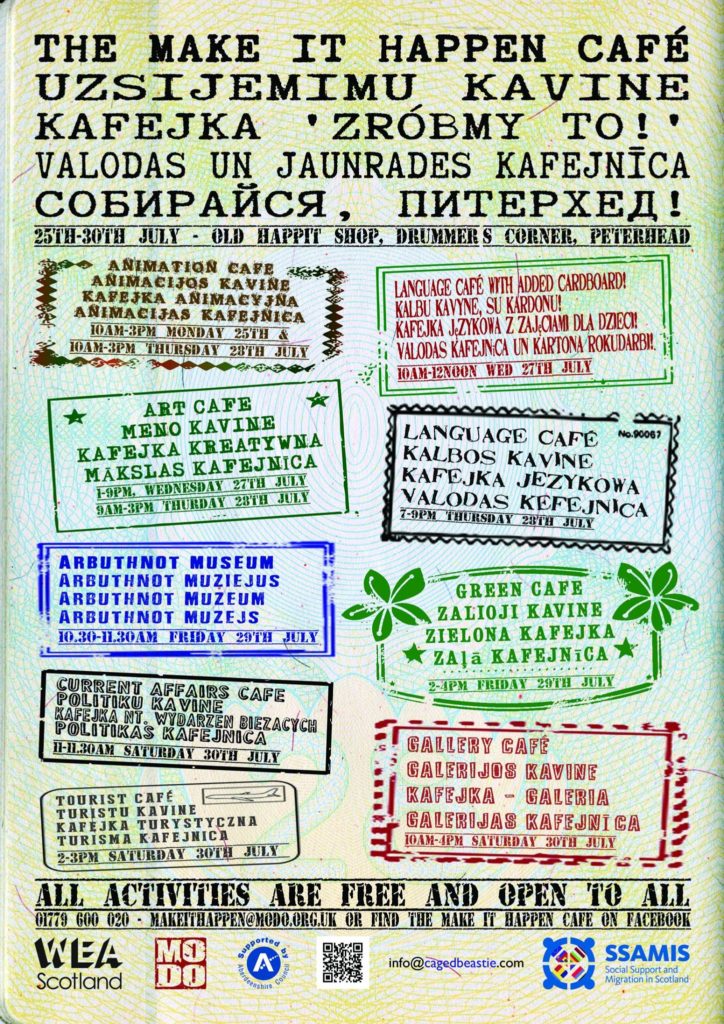
What we actually do
Our Language Café is a site for intercultural exchange, and although there is an element of taught ESOL, the beautiful part is the stuff that goes on around the edges. The WEA use a social practice model of teaching, which means that the focus is on language that people need in their everyday lives. Like SSAMIS, they advocate a user-led approach, so in the first café we asked the group what they would like to talk about during the term. Sessions have included CPR training with the Fire Brigade, making paper flowers to decorate our café, and my personal favorite: making, cooking and eating ”bannocks”–Scottish pancakes. Katrena, our tutor, pre-taught cooking vocabulary, and participants shared the words in their native language. Sometimes we used Google Translate to help, but it seems to be particularly poor at translating between English and Lithuanian, giving “raw” as ”green,“ which didn’t work for the batter recipe! As the group has become more established, the focus has shifted from the taught ESOL component of each session, and conversation flows more naturally now.
On November 30, we celebrated the Scottish St Andrew’s Day and Polish Andzrejki simultaneously, combining the “Address to the Haggis” a poem by the Scottish Robbie Burns, with Polish fortune-telling games accompanied by Lithuanian and Italian food.
Billy, a local photographer, came to talk to the group about Scottish wildlife and show some of his photos. Several of the group are keen photographers, and have since met up with Billy to explore the local area and get expert guidance on their own photography. Billy has come back to the Language Café as a participant on several occasions, and real friendships are forming. At our Christmas event, we made Christmas decorations whilst eating Stollen, panettone, Lebkuchen and mince pies. We joined in with carol singing in Polish, German and English, and made plans for the forthcoming term including a juggling tutorial, a Burn’s Night celebration including Scots poetry, and a beach clean. The connections we have made within the Language Café are expanding into other areas of community life in Peterhead, and I am delighted we have the funding to continue for the rest of the financial year.
Life Beyond SSAMIS?
Funding is always a challenge, particularly for 3rd sector, voluntary organizations. As the SSAMIS PAR draws to an end, I have been furiously applying for funding, and building relationships with the local authority and project partners, to try and ensure the longer term sustainability of the small scale community initiatives we have started, especially the Language Cafe. The good news is that it is relatively low cost, links closely to Scotland’s ESOL strategy, is a small but growing group, and that the participants want us to keep going.
The Language Café increases the impact of our research beyond that of a”typical” academic project into ongoing, long-term community development. What might otherwise be dry, academic observations have been given a life of their own, thanks to the participatory action research.
There are, of course, other ways to run Language Cafes, and there are several other models here in Aberdeen City and Shire. Recently ESOL practitioners, Community Learning and Development workers, and other people involved in Language Cafes got together to share good practice, learn what others are doing, with a view to securing funding for Language Cafés so they can become a recognized part of ESOL provision, valued for their informal, immersion approach to language acquisition, as well as the possibilities they provide for wider integration.
Another new development is”Sharing Lives Sharing Languages;” a pilot project funded by the Scottish Refugee Council. This is a peer education project, where volunteers will work with Syrian new Scots, who have been settled in Aberdeenshire as part of the UK Government’s Vulnerable Person Relocation Scheme. The project is designed to complement the current Local Authority ESOL provision to support their English learning needs and is aimed at recently arrived refugees. It aims to increase the social connections and opportunities for non-native speakers to use their English outside the classroom. The WEA is the lead partner in this project, using SSAMIS research and evidence from the Peterhead Language Café in the application process. The recent arrival of Syrian new Scots is changing the migration landscape of the north east of Scotland. Syrians are the first refugees to be resettled in Aberdeenshire, and the UK Government has committed to taking a small number of families each year for the next 5 years.
I think Language Cafés offer a great opportunity to do something a bit different. This model offers holistic cultural integration, in addition to more conventional ESOL provision. SSAMIS research identified three key issues for migrants: 1.) ESOL provision didn’t always meet their needs, 2.) loneliness and social isolation, 3.) a lack of community space, especially in smaller, rural communities. During the PAR phase we have trialled Language Cafés as a response to these issues. Participants have said that they like these cafes, in addition to more formal ESOL classes, because it gives them an opportunity to meet friends and have fun. In a town like Peterhead where migrants work in segregated workplaces with few opportunities to meet locals, and where there is the political will to regenerate the town centre, and make it a more welcoming place for people to live, work and shop, I think our Language Café is well placed to make a positive contribution. Long may it last!
Click here for more information about the SSAMIS project
Claire Needler is a Research Assistant at the Centre for Migration Policy Research at Swansea University, Wales. She lives and works in rural Aberdeenshire, Scotland. Having started her working life as a lexicographer, before moving into Adult Education and Community Development, the SSAMIS project satisfies her linguistic curiosity as well as her desire to work with people from all over the world.
Published on February 1, 2017.

